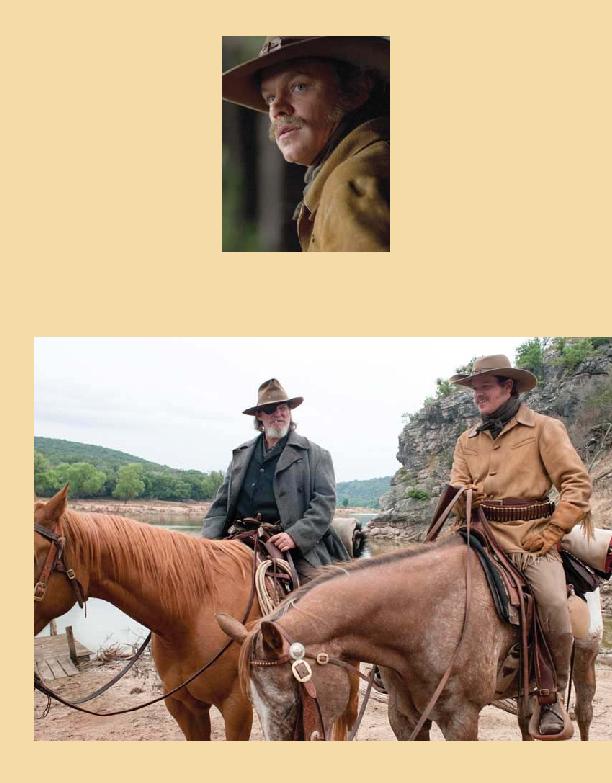
don't think anything will happen with it,"
Ethan says. "We couldn't get it made and
we came just short of getting money for it...
even with Brad Pitt basically doing it for
free." Joel chimes in, "Don't set a movie in
Tokyo during the firebombing -- unless you
have lots of money to pay for it. That was
the lesson we took away from that. It's
pretty straightforward. I don't think our
method of taking a book and adapting it
into a screenplay has changed that much
since we did To the White Sea." Although it's
destined to sit on a shelf, their hard work
wasn't without reward. The long stretches
of silence found in Sea, as Muldrow stealth-
ily makes his way across the Japanese coun-
tryside, were later echoed in the Coens'
equally nuanced, silent scenes in No Coun-
try for Old Men.
filmmakers such as the Coens to not create
their own material as well. Standout cre-
with a hanging corpse and the meeting of a
strange, bearskin-clad medicine man. The
Coens felt that both scenes helped reinforce
the strange world that Mattie was entering,
away. "There was a little bit of this idea that
when Mattie goes into Indian territory, of
her crossing over into a kind of `never, nev-
erland,'" Joel says, "like Alice going through
the looking glass, she enters this realm
where bizarre things happen, bizarre char-
acters appear -- anything can happen."
work on their scripts. When it comes to
choosing between writing something origi-
nal or adapted, the Coens have no alle-
giance to either. "It's good doing your own
stuff because that's stimulating, but it's
good to be stimulated by a third party,"
Ethan says, "[particularly,] a story you
would never come up with yourself because
there's something stimulating about that,
too." Joel adds, "That's the key. You don't
want to, or we wouldn't want to anyway,
adapt something that sometimes people as-
sume, `Oh well, you should adapt this be-
cause it's right up your alley.' And really,
that's the last thing I'd rather do. I want to